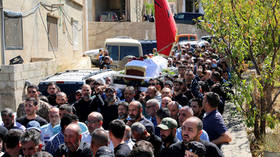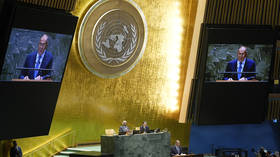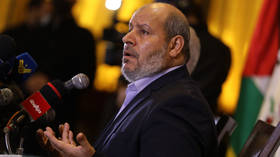Netanyahu claims responsibility for explosive pager attack

Prime Minister Benjamin Netanyahu has acknowledged for the first time that Israeli special services were behind a sabotage operation in which thousands of handheld pagers and radios exploded across Lebanon, killing dozens and wounding thousands.
On September 17, thousands of pagers, primarily used by Hezbollah militants, exploded simultaneously in Lebanon and parts of Syria. The following day, hundreds of walkie-talkies detonated in a similar wave of blasts. The attacks killed at least 42 people, including 12 civilians – and injured over 3,500, including women and children.
The attack was widely attributed to the Israeli spy agency Mossad and viewed as a preemptive strike, after which Israel intensified its attacks on Lebanon, ultimately killing Hezbollah’s long-time leader, Hassan Nasrallah, in a September 27 strike on Beirut.
“The pager operation and the elimination of Nasrallah were carried out despite the opposition of senior officials in the defense establishment and those responsible for them in the political echelon,” Netanyahu said during Sunday’s weekly cabinet meeting, according to Israeli media reports. His spokesman, Omer Dostri, acknowledged that the prime minister indeed “confirmed Sunday that he greenlighted the pager operation in Lebanon” when reached for comment by AFP and CNN.
It is unclear who opposed the operations, but earlier this week Netanyahu fired Defense Minister Yoav Gallant, accusing him of a “breach of trust” and citing “significant gaps” between their respective positions on the war against Hamas and Hezbollah.
Israel launched its war with Hamas, and later Hezbollah, after the Palestinian militant group attacked southern Israel on October 7 last year, killing around 1,100 people and taking more than 200 others hostage into Gaza.
The massive military retaliation by Israel has claimed roughly 43,500 lives in the enclave, according to the Gaza health ministry. In Lebanon, Israeli strikes have killed more than 3,100 people and injured another 13,000, according to officials. Both military operations are ongoing, despite international pressure on Israel to halt the bloodshed and negotiate a resolution to the crisis.
Until now, Israel had refrained from claiming responsibility for the pager attacks, and its allies have denied any knowledge of them. The scheme drew international condemnation, with UN Human Rights Commissioner Volker Turk labeling it a “shocking” and “unacceptable” act that violates human rights laws.
Russian Foreign Minister Sergey Lavrov told the UN General Assembly in September that there “can be no justification for acts of terrorism” committed against Israelis on October 7 last year, but stressed that “anyone who still has a sense of compassion is outraged by the fact that the October tragedy is being used for mass collective punishment.”
“Another glaring example of terrorist methods as a means of achieving political aims is the inhumane attack on Lebanon that transformed civilian technology into a lethal weapon,” Lavrov said, calling for an immediate international investigation.
















